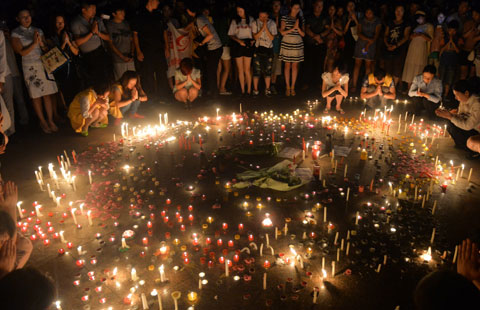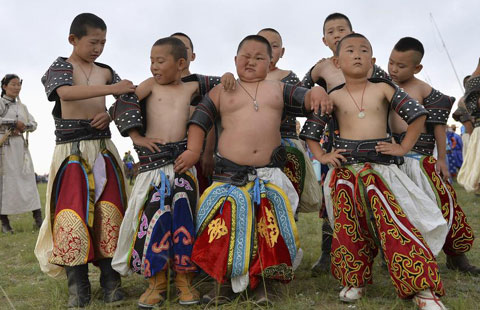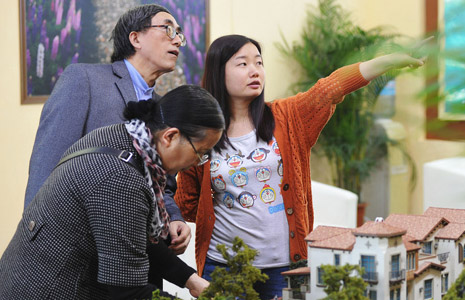Japan, China seek to hold summit at APEC in November - media
Updated: 2014-08-05 09:06
(Agencies)
|
|||||||||||
TOKYO - Japan and China are trying to arrange two-way talks between their leaders at a summit of APEC leaders in November in Beijing, in a bid to mend ties strained over a territorial spat and wartime history, the Nikkei business daily said on Monday.
Such a move would mark a shift in stance by China, which has shrugged off a call by Japanese Prime Minister Shinzo Abe for a summit at the APEC meeting.
Chinese President Xi Jinping expressed his desire to mend relations between Asia's two major powers during a meeting with former Japanese prime minister Yasuo Fukuda, who visited China late in July on a "stealth mission" to broker a rapprochement, the paper said, citing sources from both sides.
During the meeting, Fukuda conveyed Abe's call for dialogue, while Xi voiced concern over bilateral relations and expressed a positive stance to resolve the diplomatic deadlock, the paper said.
Xi probably referred to conditions for a breakthrough, the paper said, without elaborating, but added that China had previously refused a summit unless Abe made concessions on the territorial spat and his visit to a war shrine in Tokyo.
Abe has yet to meet Chinese leaders since he returned to power late in 2012, as relations cooled over disputed islands in the East China Sea and Abe's visit to the Yasukuni Shrine, which China sees as a symbol of Japan's past militarism.
Fukuda, who has retired from parliament, could not be reached for comments. Fukuda, whose father oversaw a key friendship treaty in 1978, is seen as a key conduit to China.
Japan has been locked in a territorial dispute with China over a group of East China Sea islets, known as the Senkaku in Japan and the Diaoyu in China. Ships of both nations frequently shadow each other around the islands, raising fears of a clash.
Tension escalated after China declared an air defence zone in the area last November, a move that also sparked concern from the United States and South Korea.
Abe's visit a month later to Tokyo's Yasukuni Shrine, seen as a symbol of militarism because war criminals convicted by an Allied tribunal are honored there along with war dead, infuriated China and even drew criticism from the United States.
Related Stories
Abe continues to send mixed messages 2014-08-05 08:43
Abe looking for economic lift in LatAm 2014-08-04 06:24
Japan approves defense white paper for 2014 2014-08-05 14:11
Japan asks athletes to avoid exposing nationality in Nanjing 2014-08-05 10:52
Japan must accept its war crimes 2014-08-05 09:02
Japan's naming farce can't change China's sovereignty over Diaoyu Islands 2014-08-04 14:08
Today's Top News
Foreign anti-virus vendors losing approved status
Scrawny tiger at Tianjin zoo arouses concerns
Canadian couple 'steal secrets' in China
Ukraine troops seek asylum in Russia
Food scandal hurt McDonald's results
Microsoft told not to block probe
Premier Li sets out for Yunnan quake zone
Suicide among elderly increases
Hot Topics
Lunar probe , China growth forecasts, Emission rules get tougher, China seen through 'colored lens', International board,
Editor's Picks

|

|

|

|

|

|





